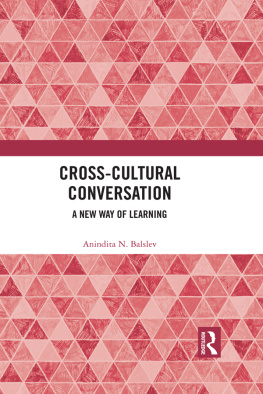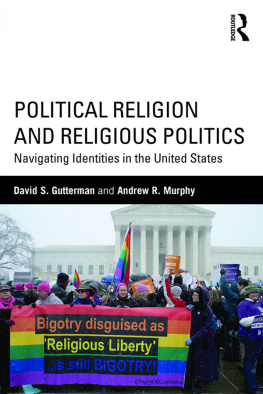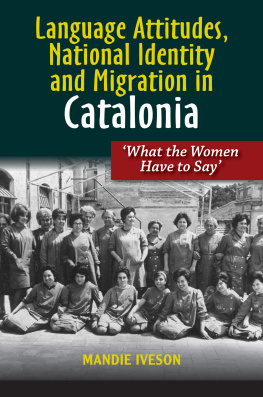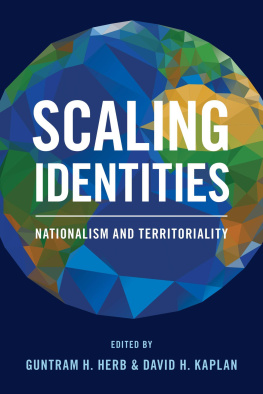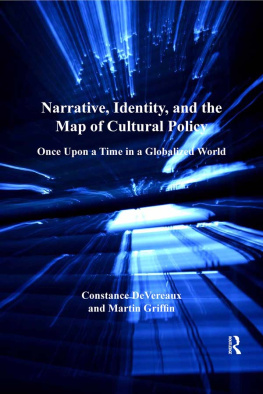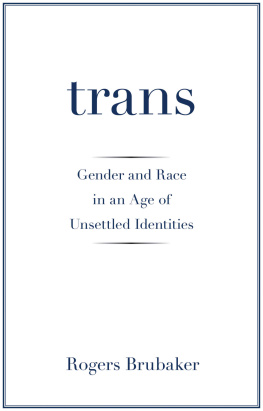Cross-Cultural Conversation
This book proposes a radical shift in the way the world thinks about itself by highlighting the significance of Cross-Cultural Conversations. Moving beyond conventional boundaries, it examines the language in which histories are written; analyzes how scientific technology is changing the idea of identity; and highlights the need for a larger identity across nationality, race, religion, gender, ethnicity and class. It asks for a concerted effort to engage each other in open conversational forums on a range of contemporary global issues, alter our attitudes toward self and the other, and unlearn prejudices that perpetuate the practice of divisive identities.
The book also explores critical themes such as political actions, solidarity-in-diversity, clash of social identities, tensions between nationalism and globalism, the quest for global peace and authentic meeting of world religions. Further, it discusses the evolving connection between science and religion, focusing on key philosophical ideas that have permeated the Indian cultural soil.
The book will be of great interest to scholars and researchers of philosophy, religious studies, science and technology studies, and cultural studies.
Anindita N. Balslev is an independent philosopher based in India and Denmark. Her research and teaching experience span India, France, the US and Denmark. She is a founding member of the International Society for Science and Religion, and is on the board of the journals World Affairs and Zygon. She earlier served on the board of the American Association for the Advancement of Science (AAAS/DOSER). She has been awarded a scholarship by the government of France, two fellowships from Denmark and recently the Jawaharlal Nehru Fellowship in New Delhi. She received her postgraduate degree from Calcutta University and PhD from the University of Paris.
Apart from many papers in professional journals, she is the author of A Study of Time in Indian Philosophy (1983; 2019), Cultural Otherness: Correspondence with Richard Rorty (2000), The Enigma of I-Consciousness (2013) and Reflections on Indian Thought: Fourteen Essays: On Indian Philosophical Themes (2019). She has organized several important CCC international conferences and is the editor of Cross-Cultural Conversation: Initiation (1996), Toward Greater Human Solidarity (2005), On India: Self Image and Counter Image (2013) and On World Religions: Diversity, Not Dissension (2014), and the co-editor of Religion and Time (1993) and Compassion in the Religions of the World (2009).
First published 2020
by Routledge
2 Park Square, Milton Park, Abingdon, Oxon OX14 4RN
and by Routledge
52 Vanderbilt Avenue, New York, NY 10017
Routledge is an imprint of the Taylor & Francis Group, an informa business
2020 Anindita N. Balslev
The right of Anindita N. Balslev to be identified as author of this work has been asserted by her in accordance with sections 77 and 78 of the Copyright, Designs and Patents Act 1988.
All rights reserved. No part of this book may be reprinted or reproduced or utilised in any form or by any electronic, mechanical, or other means, now known or hereafter invented, including photocopying and recording, or in any information storage or retrieval system, without permission in writing from the publishers.
Trademark notice: Product or corporate names may be trademarks or registered trademarks, and are used only for identification and explanation without intent to infringe.
British Library Cataloguing-in-Publication Data
A catalogue record for this book is available from the British Library
Library of Congress Cataloging-in-Publication Data
A catalog record for this book has been requested
ISBN: 978-0-367-17298-5 (hbk)
ISBN: 978-0-429-31642-5 (ebk)
Typeset in Sabon
by Apex CoVantage, LLC
Let noble thoughts come to us from all directions.
[no bhadrh kratavo yantu vivatah.]
gveda
Extraordinary developments in science and technology are bringing within our consciousness fascinating details ranging all the way from tiny sub-nuclear particles to the vast cosmos around us. Despite this explosion of knowledge, humanity is still mired in extensive conflict zones. Whether it is the continuing threat of nuclear annihilation, the battle against fundamentalist forces, or severe tensions between countries in the same region, the threat of massive destruction and devastation continues to hang over our consciousness. Added to this is the overwhelming threat posed by global warming that can be traced directly to human activity over the last two centuries. The rapid melting of the glaciers resulting in a rise in sea levels that will, over the next few decades, wipe out several island states, the massive extinction of thousands of species of mammals, birds, fish and insects, and the increasing incidence of erratic and lethal climatic events surely constitute an existential threat to the human race.
In this context Cross-Cultural Conversation takes on immense urgency and significance. It is true that cross-cultural interactions have taken place ever since human history began, but they flowed from colonialism or national domination, always accompanied by violence and war. In this day and age what we need are structured cross-cultural interactions between and within nation-states, and between individual scholars and intellectuals from around the world. That is the only way in which we can help to preserve our sanity in a world that seems to be spinning out of control, as well as counteract the growing global tendency toward polarization, ultimately leading to conflict.
It is in this whole background that Dr. Anindita N. Balslevs work in the field of Cross-Cultural Conversation over several decades assumes significance. For several years she has organized these conversations in India, which have been attended by eminent intellectuals from India and abroad. I might particularly mention the seminar organized by the Indian Council for Cultural Relations in 2013, coinciding with the 150th birth anniversary of Swami Vivekananda, which she conceptualized. This was inaugurated in Rashtrapati Bhavan by the then president of India Shri Pranab Mukherjee, and the subsequent public dialogue conducted by Anindita N. Balslev included His Holiness the Dalai Lama, MPho Tutu, Archbishop Tutus daughter, the eminent Muslim scholar Shri Wahiduddin Khan and myself. These transactions have been published under the title On World Religions: Diversity, Not Dissension (2014), edited by Anindita N. Balslev. Interestingly, the four of us represented four major religions Buddhism, Christianity, Islam and Hinduism, and the way the seminar was conducted could be a model for future attempts to organize inter-religious meetings. I myself have been involved for several decades in the interfaith movement, having met with the remarkable American Juliet Hollister, who founded the Temple of Understanding in 1960. I went on to become international chairman of this organization and have now set up a parallel Temple of Understanding India Foundation (TOUIF), which undertakes a series of interfaith events usually in co-operation with other like-minded institutions.

